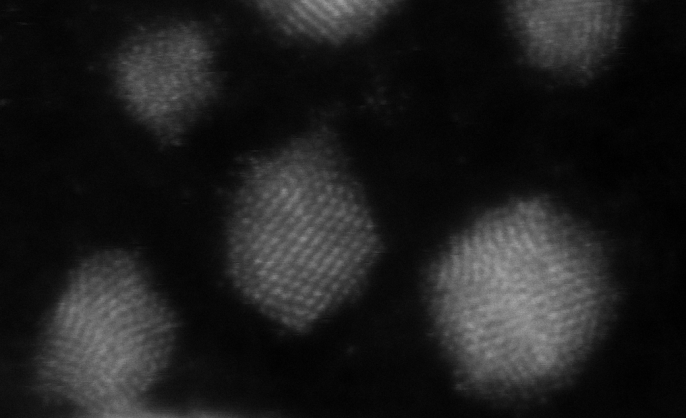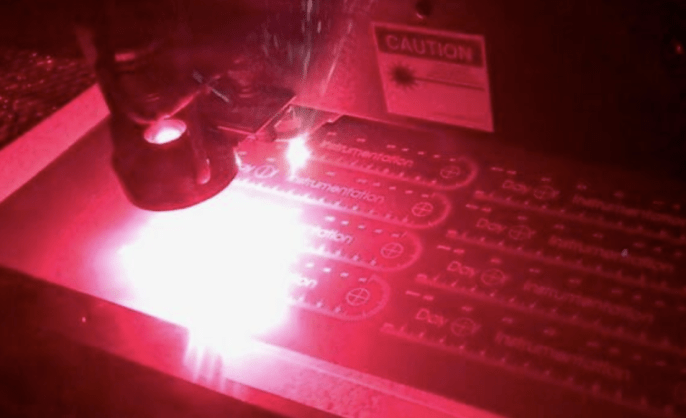West Campus Analytical Core
Building: 600 West Campus Drive (MIC)
About the core
The WCAC is an open-access facility where researchers learn to operate and collect data on a wide variety of scientific instruments suitable for the characterization and structure elucidation of chemical and biophysical samples. We have a primary instrumentation focus in the areas of mass spectrometry and nuclear magnetic resonance (NMR) spectroscopy, and we have additional resources in proteomics, optical instrumentation, and biophysical instrumentation.
If you are new to Yale, or if you are in the local area and need access to any of our instruments, please request an account, and we will contact you to set up a training session and help you get started using our instruments. We charge a fee for instrument usage, typically accounted on a per-sample or time basis. The income from these fees is used to help offset the operational and maintenance costs of our instruments, and we strive to keep these fees as low as possible. After you have received training, ensuring that all of your instrument usage is appropriately logged or reserved online will help us in our mission of a low-fee and well-maintained instrument center.
Available to Yale researchers & external researchers
Policies
Acknowledgements
If you use WCAC instruments in your research, we request that you acknowledge our facility in your written publications or grant applications as follows:
Acknowledgement: This research made use of the West Campus Analytical Core at Yale University.
Send a citation or a copy of the publication to staff for record-keeping purposes. This information is important to help support our mission and to demonstrate the need for the equipment and staff expertise within the WCAC.
WCAC staff recognition on projects requiring a large investment of time or a significant intellectual contribution by the WCAC will be discussed on an individual basis.
Facilities access
Active users will have access to MIC 109 and MIC 119 and access can be requested by emailing WCAC staff. In order to request access, users will fill out the West Campus Access Form. Active WCAC users will have access to booking calendars and instruments on which they have been trained by WCAC staff.
Training
We provide training on instruments at WCAC. All new users are required to have instrument training by WCAC staff before being granted access to WCAC and instruments. Training will be served individually or in small groups as scheduling allows. Please contact WCAC staff to request a training session. (Bruker NMR on-demand trainings are here.)
Instrument reservations
Most WCAC instruments are reservation-only except for the below:
FOM: AG 600 MHz NMR instrument Walk-in: UV/Vis spectrophotometers, FTIR, GC-MS, SQ-MS, and HPLC |
Log usage of all instruments on the clipboard next to the instrument, if instrument time was not reserved online.
Data storage
Data acquired by analytical instruments is currently stored on the instrument’s hard drive and archived on a temporary basis. Users are asked to back up their own data. If you have questions about this, please ask WCAC staff.
Publications
A few of our most recent publications are below. Click here for an alphabetical list of our publications going back to 2016.
Dudkina N, Park HB, Song D, Jain A, Khan SA, Flavell RA, Johnson CH, Palm NW, Crawford JM. Human AKR1C3 binds agonists of GPR84 and participates in an expanded polyamine pathway. Cell Chem Biol. 2025 Jan 16;32(1):126-144.e18. doi: 10.1016/j.chembiol.2024.07.011. Epub 2024 Aug 19. PMID: 39163853; PMCID: PMC11748234.
Culp EJ, Nelson NT, Verdegaal AA, Goodman AL. Microbial transformation of dietary xenobiotics shapes gut microbiome composition. Cell. 2024 Oct 31;187(22):6327-6345.e20. doi: 10.1016/j.cell.2024.08.038. Epub 2024 Sep 24. PMID: 39321800; PMCID: PMC11531382.
Brown C, Ghosh S, McAllister R, Kumar M, Walker G, Sun E, Aman T, Panda A, Kumar S, Li W, Coleman J, Liu Y, Rothman JE, Bhattacharyya M, Gupta K. A proteome-wide quantitative platform for nanoscale spatially resolved extraction of membrane proteins into native nanodiscs. Nat Methods. 2025 Feb;22(2):412-421. doi: 10.1038/s41592-024-02517-x. Epub 2024 Nov 28. PMID: 39609567; PMCID: PMC11810782.
Grome MW, Nguyen MTA, Moonan DW, Mohler K, Gurara K, Wang S, Hemez C, Stenton BJ, Cao Y, Radford F, Kornaj M, Patel J, Prome M, Rogulina S, Sozanski D, Tordoff J, Rinehart J, Isaacs FJ. Engineering a genomically recoded organism with one stop codon. Nature. 2025 Mar;639(8054):512-521. doi: 10.1038/s41586-024-08501-x. Epub 2025 Feb 5. PMID: 39910296; PMCID: PMC11903333.
Seminara AB, Hatzios SK. An affinity-based depletion strategy for evaluating the effects of ergothioneine on bacterial physiology. Cell Chem Biol. 2025 Mar 20;32(3):486-497.e7. doi: 10.1016/j.chembiol.2025.02.004. Epub 2025 Mar 10. PMID: 40068683.
Wu Q, Song D, Zhao Y, Verdegaal AA, Turocy T, Duncan-Lowey B, Goodman AL, Palm NW, Crawford JM. Activity of GPCR-targeted drugs influenced by human gut microbiota metabolism. Nat Chem. 2025 Apr 3. doi: 10.1038/s41557-025-01789-w. Epub ahead of print. PMID: 40181149.
Contacts
Main instrumentation lab and staff:
600 West Campus Drive
Molecular Innovations Center room 109
West Haven, CT 06516
(West Campus map, driving directions, Yale shuttle schedule)


